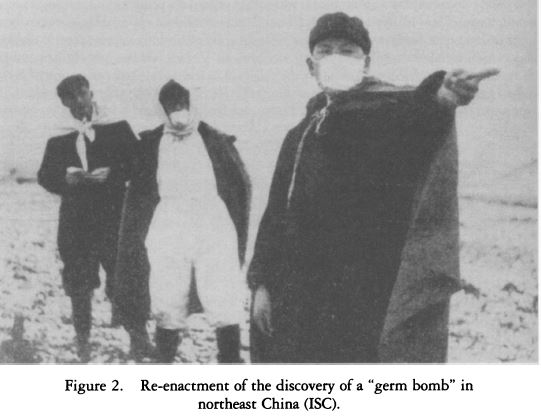Weaponizing medicine: China’s disease prevention and the “military-civil fusion” in medical research
Sascha Klotzbücher (University of Göttingen)
Weaponizing medicine: China’s disease prevention and the “military-civil fusion” in
medical research
Since 2016, the Chinese Communist Party proclaimed the strategy of “military-civil fusion” (军民融合) (Kania 2019) or “dual-use for military and civil purposes” (军民两用) of research. However, this cooperation between military academies and civil universities or research institutes is not new. This lecture aims to discuss the overseen or hidden link and connection to the People’s Liberation Army (PLA) and its warfare for the institutionalization of disease control in China with case studies from the Korean War to the recent outbreak of Covid-19 epidemics.
My motivation is to increase awareness in the international scientific community for an underestimated and overseen organizational relationship and ongoing exploration of new forms of warfare with “life-controlling power” (制生权) with strategically important
scientific disciplines (neuroscience, gene engineering, biomedicine). Researchers cooperating with Chinese scientific partners or those who use Chinese sources and data should not take for granted the autonomy of science in China. This talk helps them to get an understanding of how they themselves and their research results could become part of the Chinese “military-civil fusion”.
I will discuss two different dimensions of this militarization of disease control and medicine: First, disease control is organized in a procedural logic along with the script of warfare and it mainly implemented by agents of warfare. The fight against an “American virus” during the Korean War, the strive to eliminate transmitting animals during several health campaigns, the SARS in 2003 and Covid-19 epidemics in Wuhan are examples how disease control is organized in the logic of battle when military logistics and organization patterns temporarily take the lead and establish new forms of control and distribution. After this intervention, new
forms of surveillance will be established. The health code app in Wuhan is part of this silent “Xinjiang-ification” of the Chinese “surveillance regime” (Tiffert).
The second dimension of the militarization highlights the structural power imbalance between civil and military entities in the medical field. With examples from noble price laureate Tu Youyou and her involvement in the “Project 523”, SARS 2003 and the Covid-19 epidemics in Wuhan as case studies, I show how the military side can initiate, intervene, supervise and investigate civil hospitals or research facilities (e.g. laboratories) in hidden hierarchies and big project consortiums. This involvement includes going-out (scientific cooperation, espionage) and the new “buying-in” under the paradigm of military-civil fusion. The aim is to integrate
platforms with internationally renowned scholars for technological innovation and knowledge transfer platforms inside and outside China. Natural science can create military and ideological power.
In my final section, I will give some recommendations about how this influence of the Chinese military into our own research and publications can be limited.
Sascha Klotzbücher is the Acting Chair for “Society and Economy of China” at the University of Göttingen. His research interests are health governance and memory of the Cultural Revolution. Related publication to the topic of the talk is the article “’Embedded Research’ in Collaborative Fieldwork” in the Journal of Chinese Current Affairs and his Ph.D. thesis on rural health care in the People’s Republic. His recent publication is a monograph on the transgenerational transmission of the Cultural Revolution in families (Lange Schatten der Kulturrevolution: Eine transgenerationale Perspektive auf Politik und Emotion in der
Volksrepublik China“. Psychosozial-Verlag, 2019).

